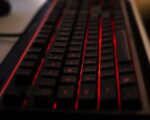
Tesla has reportedly placed a large order with the Taiwanese chip foundry TSMC for next-gen 4nm/5nm processors that will help bring its Full Self-Driving Beta system to the next level of autonomy. Tesla is the first electric vehicle client of TSMC and immediately went into its top 10 customer list.
Samsung may have won Tesla’s future camera orders for its sophisticated Vision-only autonomous driving system, but it has allegedly lost the side of chips for the next generation of the FSD Beta platform to TSMC. Tesla seems to be the first electric vehicle maker to have requested a big batch of TSMC’s modern 4nm/5nm generation processors, immediately becoming one of the foundry’s seven biggest customers.
So far, Tesla has been sourcing its Full Self-Driving AI processing power dubbed Hardware 3.0 predominantly from Samsung’s foundry in Austin, Texas, starting with 14nm chips and then moving to 7nm ones in the latest iteration. Those who got the previous generation could upgrade to the new computer for a price, too.
Now, however, TSMC will be the exclusive chip supplier for Hardware 3.5/4.0, or whatever Tesla decides to call its next-gen 4nm/5nm autonomous driving computer system. The new FSD platform will reportedly be 3x faster and more frugal than the current 7nm edition, as can be expected from a processor node upgrade.
Tesla will need all that power to deliver on its fully autonomous driving promise that keeps getting put off over regulatory hurdles. Recently, Elon Musk somewhat reneged on the promise that Tesla will release an FSD Beta update by year’s end that will usher in Level 4/5 on the standardized autonomous driving system. While he thinks the system is ready to take you from point A to B without touching the wheel, certification and approval of the platform as such is still a long time away.
What’s more, Tesla’s Autopilot solution is embroiled in an ever-growing number of controversies and regulatory investigations that would only hinder its certification as anything higher than Level 3 in the foreseeable future. These range from a federal probe in the US, or the Californian DMV protesting the very name Autopilot, to fatal collisions that may warrant further investigation abroad.
Tesla’s self-driving system is now only relying on its Vision camera kit as it stopped using radars not long ago, and all that image processing involved could only benefit from the upgrade to TSMC’s fast and frugal chips.
GREAT NEWS: TSMC is reportedly to produce 4/5nm FSD chip for Tesla starting in 2023. If confirmed, Tesla would be among TSMC’s top 7 clients and 1st EV client ever. pic.twitter.com/7rS4qoo8Ja
— Ray4Tesla⚡️????☀️???? (@ray4tesla) November 21, 2022
Daniel Zlatev – Tech Writer – 477 articles published on Notebookcheck since 2021
Wooed by tech since the industrial espionage of Apple computers and the times of pixelized Nintendos, Daniel went and opened a gaming club when personal computers and consoles were still an expensive rarity. Nowadays, fascination is not with specs and speed but rather the lifestyle that computers in our pocket, house, and car have shoehorned us in, from the infinite scroll and the privacy hazards to authenticating every bit and move of our existence.
Daniel Zlatev, 2022-11-21 (Update: 2022-11-21)











